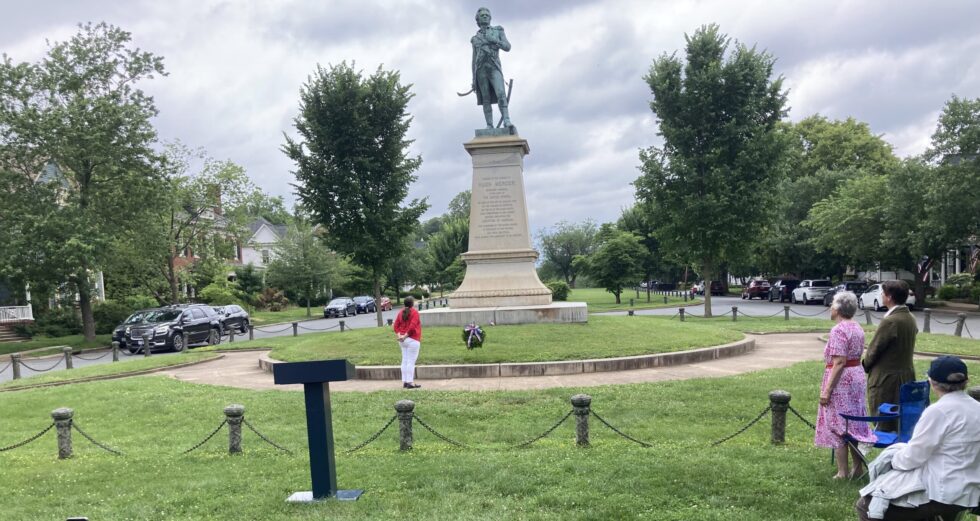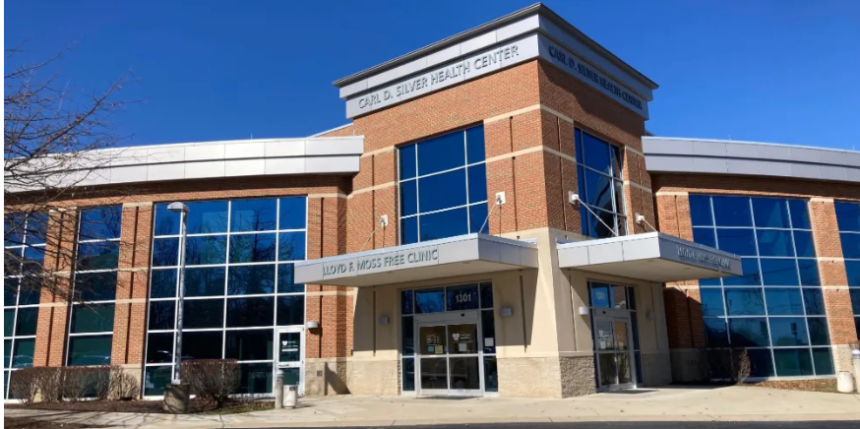
Washington Heritage Museums hosts wreath-laying at the Hugh Mercer Monument in honor of Memorial Day.
Fredericksburg-area residents are likely familiar with Hugh Mercer for his work as a physician in town—George Washington’s mother, Mary, was among his patients—and his service as a brigadier general during the Revolutionary War.
His name is on a local elementary school and there is a statue of him on Washington Avenue in downtown Fredericksburg.
But folks may not be familiar with the story of the time Mercer assembled a 600-man militia in downtown Fredericksburg, prepared to storm Williamsburg during the Gunpowder Incident.
Rudy Lane, a former longtime docent at the Hugh Mercer Apothecary Shop and current drama teacher in Stafford, told this story to guests assembled at the Mercer statue for a Memorial Day wreath-laying sponsored by the Washington Heritage Museums on Monday.
It took place in April of 1775. At the time, Mercer was, as Lane described, “an everyday citizen of Fredericksburg.”
“He was a family man,” Lane said. “The type of man you’d tip your hat to and say, ‘Good afternoon.’ You saw him every Sunday at church. He was your neighbor, he was your acquaintance, he was your doctor.”
Like most of our heroes, he was an average person living in extraordinary times, Lane said.
On April 21, 1775, two days after the Battles of Lexington and Concord, Lord Dunmore, the governor of the Virginia Colony, ordered all the gunpowder removed from the capital of Williamsburg and stored on a British Royal Navy ship
This upset the citizens of Williamsburg and sparked the formation of militias throughout the colony. Mercer received notice of the unrest on April 24—an amazingly short span of time considering the irregularity of the 18th-century mail system, Lane said.
Mercer was among a group of Fredericksburg citizens who wrote to George Washington to ask what they should do. Washington either did not respond or the response has been lost, but Lane said he imagines Washington was so busy at the time that he left Mercer in charge of deciding what to do.
Mercer rose to the occasion.
“Hugh, doing what he does, assembles a 600-man militia in downtown Fredericksburg, ready to ride to Williamsburg,” Lane said.
Peyton Randolph, the speaker of the House of Burgesses, was able to diffuse the situation in Williamsburg and word got to the militia in Fredericksburg before they started marching.
Mercer went back to being an everyday citizen of Fredericksburg—but not for long. A year later, in June of 1776, he was appointed a brigadier general in the Continental Army and ordered to report to New York. He fought and led soldiers in multiple battles and died after being wounded at the Battle of Princeton in January of 1777.
Memorial Day, as Washington Heritage Museums’ executive director Anne Darron said, is “the one day we set aside to remember those service members who, like Hugh Mercer, gave the last full measure of devotion to our United States.”





